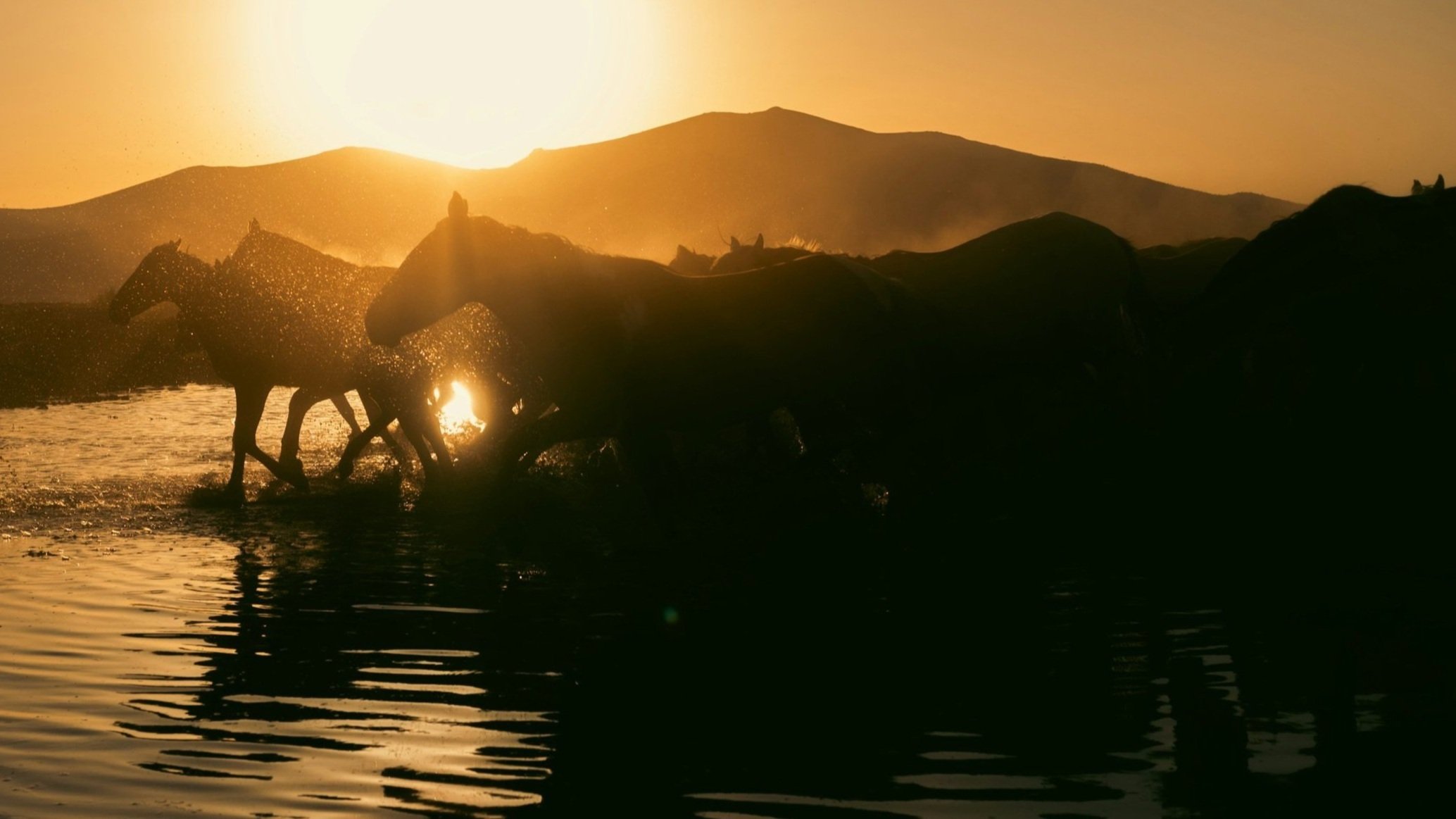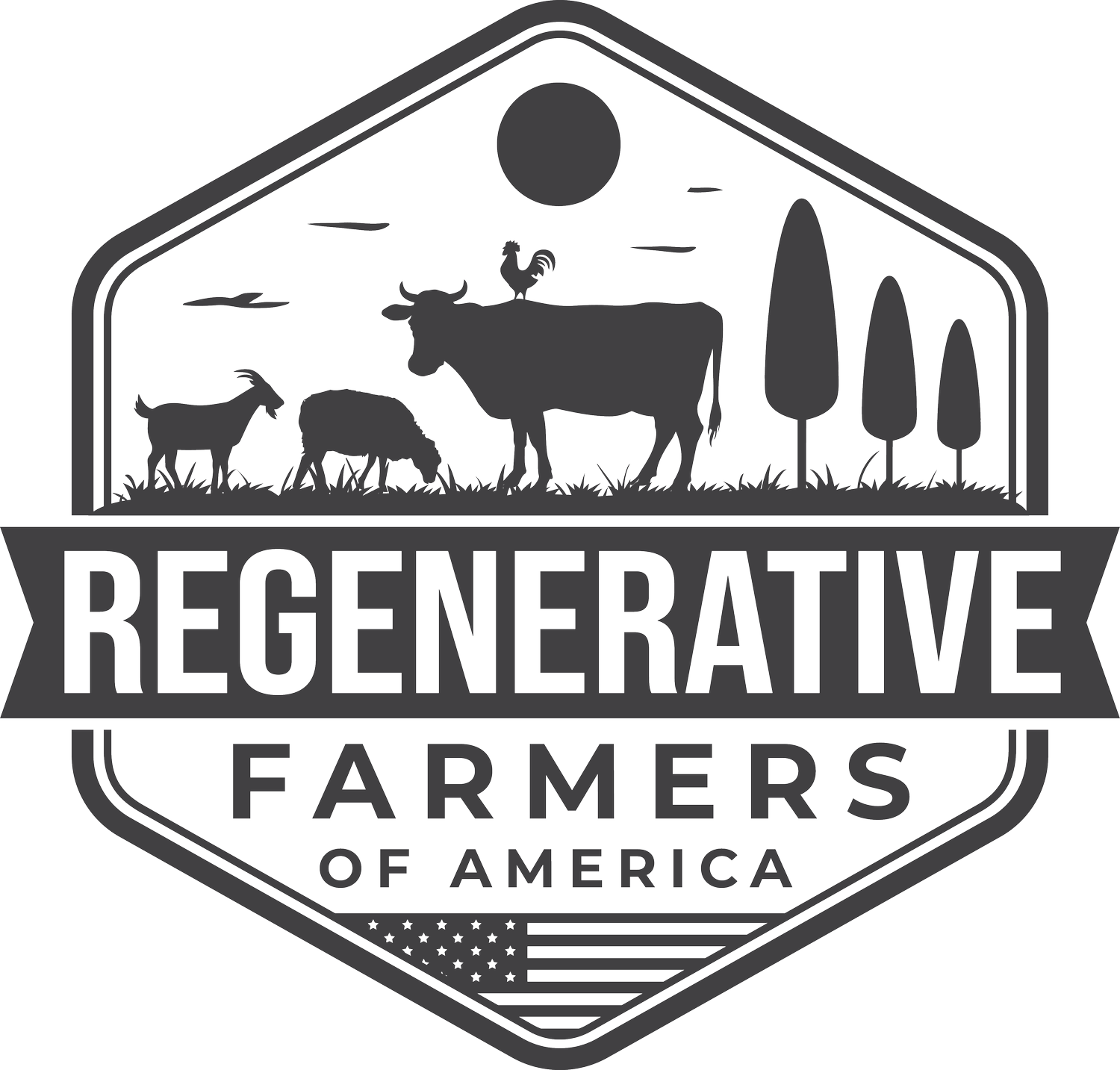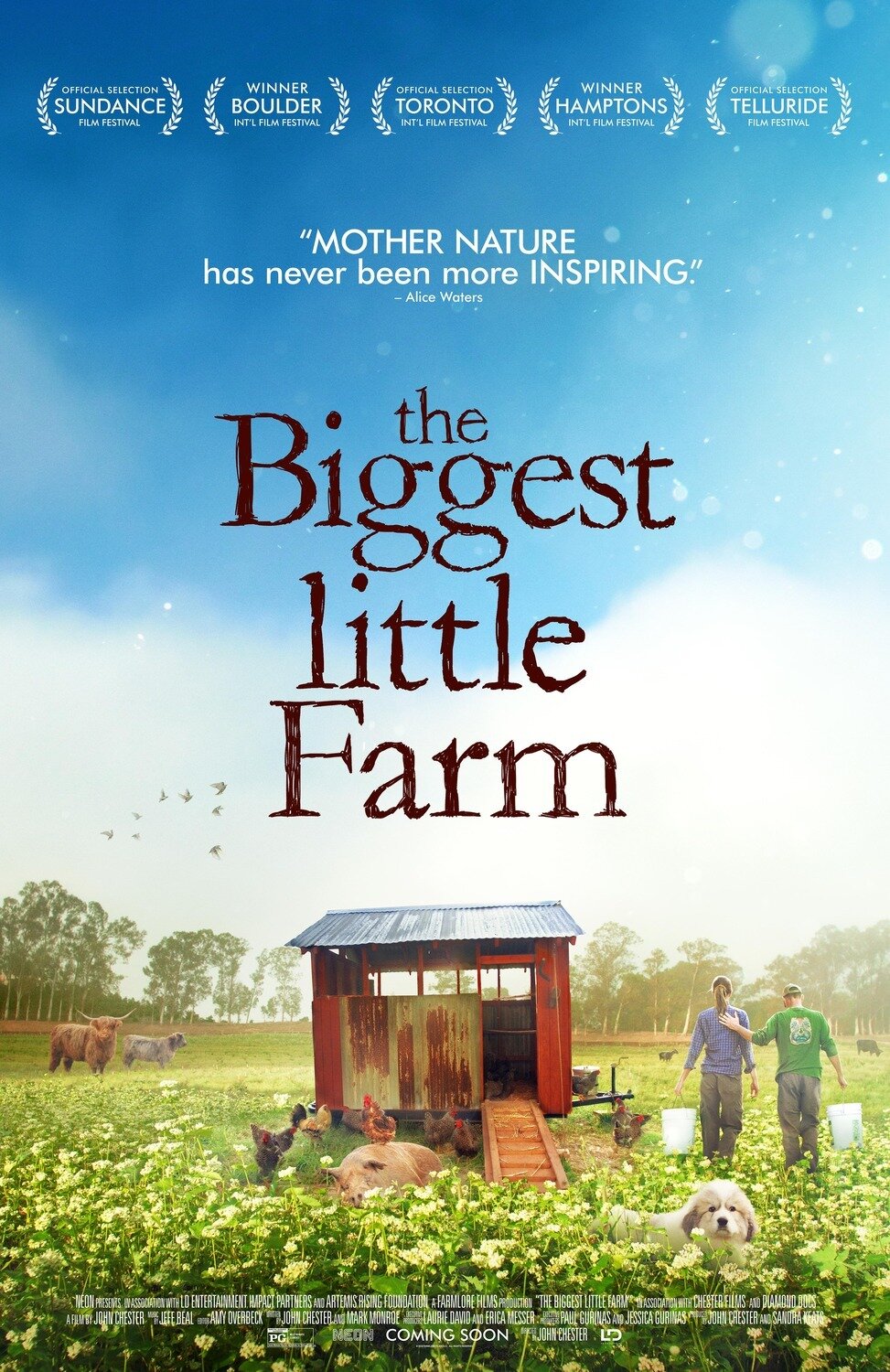
Documentaries about
Regenerative
Agriculture
Kiss the Ground - Filmmakers follow a group of activists, politicians, farmers, and scientists as they tackle the topic of “regenerative agriculture,” exploring how the regeneration of our soil might hold the key to a more sustainable future.
Release Date: September 22, 2020
Where to Watch: Netflix, Vimeo, or Amazon
To Which We Belong - a documentary that highlights farmers and ranchers leaving behind conventional practices that are no longer profitable or sustainable. These unsung heroes are improving the health of our soil and sea to save their livelihoods — and our planet.
See their site for multiple viewing platforms.
The Biggest Little Farm - Molly and John Chester, with no formal farming experience, abandoned their urban life to start a farm on 200 acres of land outside of Los Angeles.
The documentary, shot over eight years by John Chester, follows the couple’s quest to regenerate the soil and create a sustainable farm on infertile land.
Release Date: May 10, 2019
Where to Watch: Hulu, Blu-Ray, DVD, or Amazon
You can also check out these shows
that talk about Regenerative Agriculture!
Clarkson's Farm is a popular documentary series available on Amazon Prime that follows the journey of Jeremy Clarkson, a British television presenter, as he tries his hand at running a 1,000-acre farm in the Cotswolds region of England. The second season of the show, "Clarkson's Farm 2," continues to chronicle his experiences as a farmer and the challenges and rewards that come with working the land.
One of the key themes of the show is ecological farming, which involves using sustainable farming practices to minimize the impact on the environment while maximizing the health and productivity of the farm. Throughout the series, Clarkson is seen experimenting with a variety of techniques to achieve this goal, including planting cover crops to prevent erosion and improve soil health, using natural fertilizers like compost and manure, and reducing the use of pesticides and other chemicals.
Spoiler for Clarkson Farm below if you love regenerative ag!
"Bless This Mess" is a popular sitcom available on various streaming platforms that follows the adventures of a newlywed couple who give up their city life and move to a farm in rural Nebraska. Throughout the series, they struggle to adapt to the challenges of farm life, but ultimately learn the value of hard work, community, and regenerative farming.
"Bless This Mess," the couple quickly realizes that their farm has been severely depleted by years of industrial farming, and they set out to transform it into a regenerative farm.
They do this by implementing a variety of sustainable farming practices, such as crop rotation, cover cropping, and using natural fertilizers like compost and manure. They also work to increase the diversity of plant and animal species on their farm, which in turn helps to support a healthy ecosystem. As they work to restore the health of their land, they also become more involved in their local community and learn the importance of building strong relationships with other farmers, consumers, and policymakers.
Looking for Regenerative resources?
Sign up for our newsletter below and we will keep you in the loop as we find more ways to support regenerative agriculture!
FAQs about Regenerative Agriculture Documentaries
What are Regenerative Agriculture Documentaries?
Regenerative Agriculture Documentaries are films that explore the principles and practices of regenerative agriculture. They showcase the stories of farmers, ranchers, and land stewards who are using innovative techniques to regenerate the soil, enhance biodiversity, and sequester carbon. These films highlight the potential of regenerative agriculture to address some of the most pressing challenges of our time, from climate change and food insecurity to biodiversity loss and environmental degradation.
Why should I watch Regenerative Agriculture Documentaries?
Regenerative Agriculture Documentaries offer a unique perspective on agriculture and the environment. They show how regenerative practices can transform the way we produce food, regenerate the land, and improve the health of our communities. These films inspire and educate viewers about the importance of regenerative agriculture and the role we all can play in building a more sustainable and resilient food system.
Where can I watch Regenerative Agriculture Documentaries?
Regenerative Agriculture Documentaries can be found on various streaming platforms like Netflix, Amazon Prime, and Hulu. You can also find them on websites like Kiss the Ground, Regeneration International, and Vimeo. Some of these documentaries may require a subscription or rental fee, while others may be available for free. See links above
Can Regenerative Agriculture Documentaries help me learn about regenerative agriculture if I'm not a farmer?
Yes, Regenerative Agriculture Documentaries can be an excellent resource for anyone interested in learning about regenerative agriculture. These films are designed to be accessible and engaging for a wide range of audiences, from farmers and ranchers to consumers and activists. They provide a comprehensive introduction to the principles and practices of regenerative agriculture, making it easy for anyone to understand how it works and why it matters.
What can I do to support Regenerative Agriculture?
There are several ways to support Regenerative Agriculture. One way is to educate yourself about the principles and practices of regenerative agriculture by watching documentaries and reading books on the subject. Another way is to support farmers and ranchers who are using regenerative practices by buying their products or volunteering on their farms. Find a list of Regenerative Farms here.
Check out our story
for little ones about
Regenerative Agriculture
The story of one little girl's journey from falling in love with farm animals to starting her own backyard farm & garden using Regenerative Agriculture techniques. This book is a perfect story of overcoming challenges to do what you love while helping improve the world.







